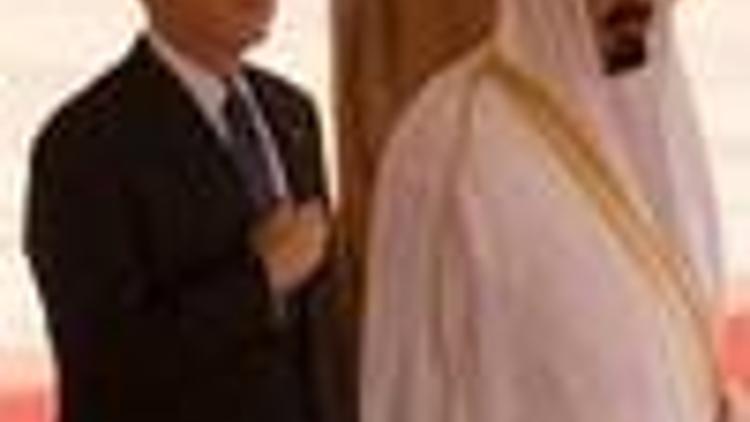Bush asks Saudis to increase oil production
Güncelleme Tarihi:

President Bush is appealing to oil-rich Saudi Arabia to increase production just as oil prices have hit another record high, climbed to a new high Friday, above $127 a barrel, Associated Press reported.
As U.S. consumers cope with rising prices at the gas pump, Bush is on a one-day visit to Saudi Arabia for another burst of diplomacy King Abdullah.
When the two met in mid-January, the president asked Saudi Arabia to raise production to ease high prices at the pump. Bush got a chilly response to his plea. The kingdom said it would increase production only when the market justified it, and that production levels appeared normal.
Oil prices climbed to a new high Friday, above $127 a barrel. At the pump, gas prices rose to a national average of $3.78 per gallon, according to a survey of stations by AAA and the Oil Price Information Service.
Bush acknowledges that raising output is difficult because the demand for oil — particularly from China and India — is stretching supplies. Besides, any production hike might not lower prices that much. Some economists say those prices are being driven up by increased demand, not slowed production.
Bush's visit to Saudi Arabia, which has the world's largest supply of oil, comes two days after Congress voted to temporarily halt daily shipments of 70,000 barrels of oil to the nation's emergency reserve. Bush has refused to stop pouring oil into the Strategic Petroleum Reserve, saying the stockpile was meant for emergencies and that halting the shipments would have little or no impact on gasoline or crude oil prices.
It's a move that Democrats have sought for the past year to increase supply and apply downward pressure on prices. With an eye to the November election, the Senate sent the measure to the president Wednesday night without a single GOP objection. The White House has indicated that Bush will sign the reserve measure.
Also, as Bush prepared to leave Washington, Senate Democrats introduced a resolution that would block $1.4 billion in arms sales to Saudi Arabia unless Riyadh agrees to increase its oil production by 1 million barrels per day. The Democrats said they introduced the measure to coincide with Bush's trip to send a message to Saudi Arabia that it should pump more oil to reduce the cost of gas for Americans.
High energy costs are a major drain on the U.S. economy, which is experiencing a slowdown that some think is already a recession. Oil prices are nearly $125 a barrel and gasoline threatens to go to $4 a gallon this summer.
Anthony Cordesman, a security analyst for the Center for Strategic and International Studies, said Abdullah may produce something "simply because it's good manners," but nothing that would have a significant effect.
"U.S. influence over OPEC and Gulf oil production is diminished," he said. "It's not clear what the incentive is to Saudi Arabia. We can't deliver on (Mideast) peace. We can't deliver on arms transfers. We can't deliver on the Iraq that Saudi Arabia wants. We are raising problems in terms of Iran. And the reality is the market isn't being driven by us; it's being driven by China, by India, by rising Asian demand."
Bush is paying his second visit to Abdullah this year — on top of a stop by Vice President Dick Cheney in Saudi Arabia in March — to talk about his goal of achieving an Israeli-Palestinian peace deal before he leaves office. Saudi Arabia's immense power in the region means that its backing of Palestinian President Mahmoud Abbas and any concessions he will have to make is key.
Photo: AP

